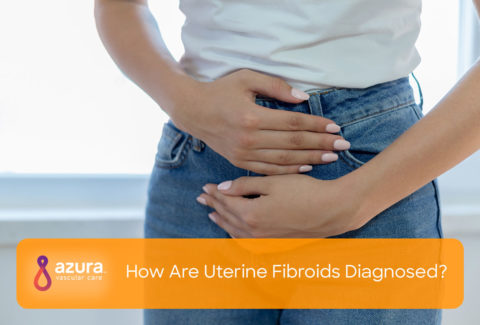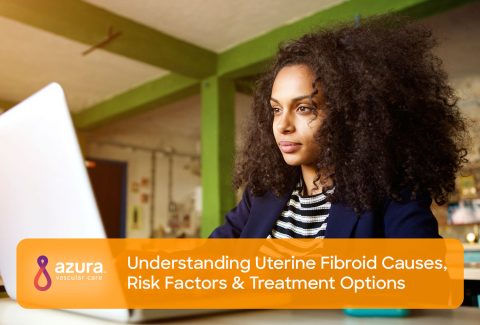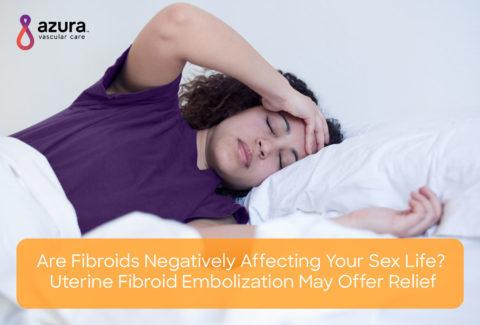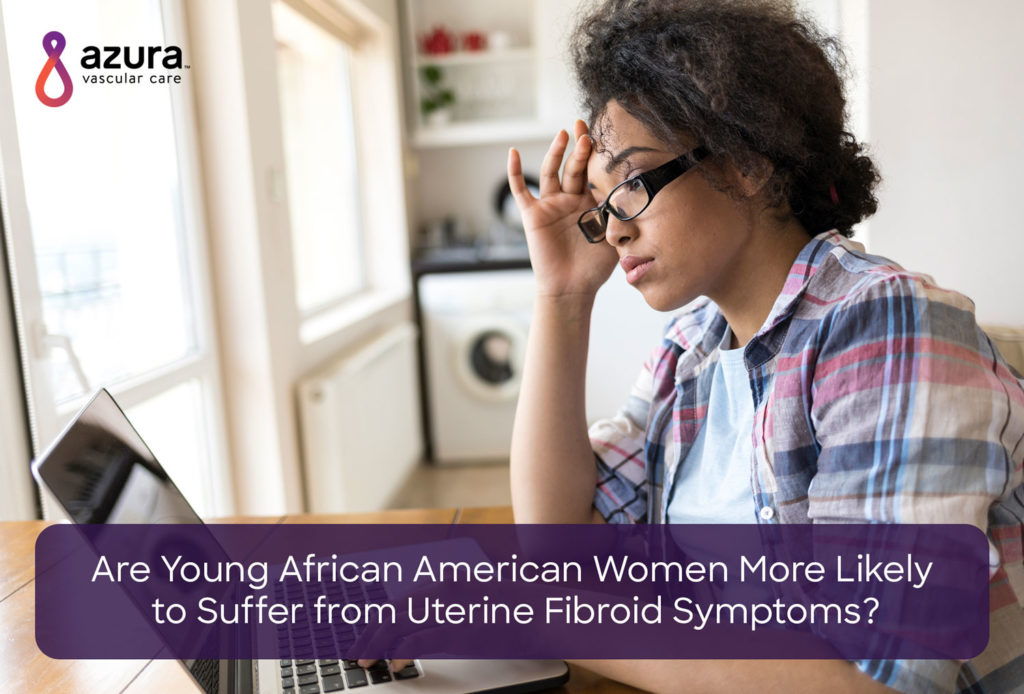
African American women are three times more likely to develop uterine fibroids than women of other races.
A new study also shows they’re more likely than women of other races to suffer severe symptoms from their uterine fibroids.ii This study illustrated that young African American women between the ages of 29 and 39 are much more likely to experience severe uterine fibroid symptoms than other women in the same age range.
Additionally, the study found that African American women are more likely than white women to have fertility concerns following fibroid treatment, as well as experience relationship issues and anxiety resulting from their fibroids.ii
Severe Uterine Fibroid Symptoms
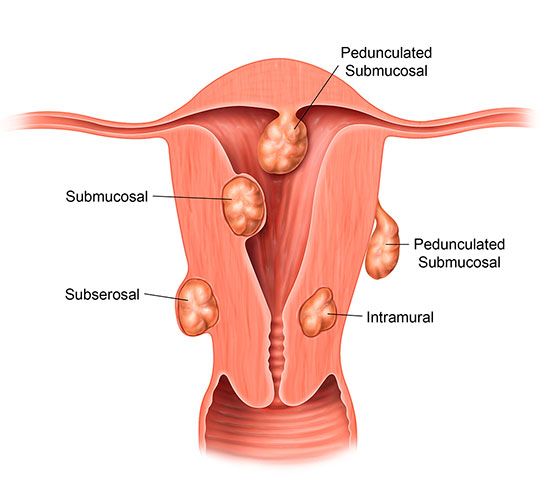
The researchers involved in the study, “The Burden of Uterine Fibroids for African-American Women: Results of a National Survey,” conducted a survey of 268 African American women and 573 white women. Among both groups of women, age, education, employment status and overall health condition were similar, but symptoms and consequences were not.
Compared to their white counterparts, African American women were:
- Twice as likely to report abdominal bloating and pressure
- Nearly three times as likely to suffer from anemia as a result of fibroids
- Significantly more likely to suffer from heavy or prolonged periods, including passing of blood clots when menstruating
- Significantly more likely to suffer from cramping and abdominal tightness during menstruation
Relationships Suffered More
The study also shows that 22% of all the women surveyed felt that their fibroids negatively affected their feeling of femininity or sexuality, and between 14% and 22% of the surveyed women said their fibroids interfered with their relationships.
But compared to the white respondents, the African American women were:
- More likely to say fibroids negatively affected their relationships with friends and family
- More likely to say their fibroids affected their relationship with their significant other
- More likely to say their fibroids negatively affected their ability to care for their children and/or their homes
More Work Consequences
The researchers concluded that because African American women are more likely to develop fibroids at an earlier age than their white counterparts, and they’re more likely than white women to have worse uterine fibroid symptoms, they also suffer economic consequences.
- The study shows that African American women are 77% more likely to miss work due to their fibroids than the white women surveyed
Heightened Concerns
Fibroids also appear to cause more concern and anxiety in African American women. According to the survey:
- While most of the women surveyed were afraid that their fibroids would return, African American women were more likely to fear a recurrence
- African-American women were also significantly more worried than their white counterparts that their fibroids would impact the chances of them having a successful and healthy future pregnancy
- African American women were also more concerned than the white women that they would suffer depression if their fibroids returned
Why Do Fibroids Hit African American Women Harder?
While there is no definitive research on why African American women suffer more severe symptoms than women of other races due to their fibroids, evidence suggests that genetics and low levels of vitamin D might play a significant role.iii, iv
One study shows that vitamin D deficiency has been linked to a higher risk of fibroids. In this study, only 10% of the African American women who participated had sufficient levels of vitamin D, compared with 50% of white women.iv
While there is nothing you can do about your genetics, you can work to control your vitamin D levels by:
- Exposing your skin to sunlight for 10 to 30 minutes each day
- Taking a vitamin D supplement at the recommended dosage
- Eating foods rich in vitamin D, including salmon, tuna, mackerel, cod, oysters, shrimp, beef liver and eggs
- Keeping your weight in the healthy range. Vitamin D is a fat-soluble vitamin, thus the more fat cells you have in your body, the less vitamin D is released into your blood stream v
The best way African American women can help relieve their fibroid symptoms, however, is to see their doctor and have a conversation to determine the fibroid treatment that is best for them. You should know that surgery is not your only option… there is a minimally invasive alternative known as Uterine Fibroid Embolization (UFE) that’s worth asking your doctor about. You don’t need to continue to suffer.
Sources:
i Huyck K.L., Panhuysen C.I., Cuenco K.T., et al. (2008) The impact of race as a risk factor for symptom severity and age at diagnosis of uterine leiomyomata among affected sisters. American Journal of Obstetrics and Gynecology 198(168): 161–169.
ii Stewart, E. A., Nicholson, W. K., Bradley, L., and Borah, B. J. (2013, October). The Burden of Uterine Fibroids for African-American Women: Results of a National Survey. Journal of Women’s Health. 22(10): 807–816.
iii U.S. Department of Health and Human Services Office on Women’s Health. Uterine fibroids fact sheet. Retrieved from: http://www.womenshealth.gov/publications/our-publications/fact-sheet/uterine-fibroids.cfm
iv Baird, D.D., Hill, M.C. Schectman, J.M., Hollis, B.W. (2013). Vitamin D and the risk of uterine fibroids. Epidemiology, 24:447–453. [PubMed].
v University Health News. http://universityhealthnews.com/daily/depression/10-vitamin-d-deficiency-symptoms-that-you-can-identify-yourself/.

